Real-life horror movie for those the West left behind
How the Taliban will rule Afghanistan is still unknown, but millions already fear the worst.
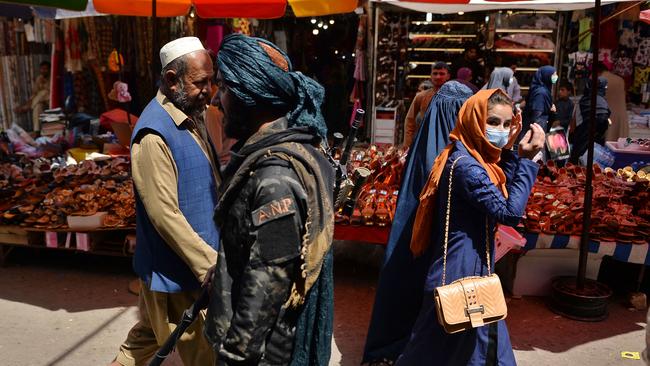
Two days after the last US military plane lifted off the Kabul airport tarmac this week – ending America’s involvement in Afghanistan and taking with it 20 years of Western promises – 10 armed Taliban in a police truck pulled up outside Zahra Nabi’s apartment building in the capital.
They poured into the manager’s office and demanded he pay them $US5000 for having three months earlier reported to the police their attempts to blow up the building.
“Can you imagine? They say, ‘You did not allow me to kill you, so now you must pay me’. It’s crazy,” Nabi told Inquirer.
“The guys that yesterday were terrorists now have the power and the guns. This is no way to run a country. Thirty-five million people live here – not everyone can run away – so we have to find a way through this. I don’t know what will happen but it’s becoming a horror movie.”
Just how the Islamist extremists, who poured into Afghanistan’s capital on August 15 and declared the collapse of the Western-backed civilian government, intend to govern is still unclear three weeks after they seized power.
On Thursday the group announced Taliban leader Mullah Haibatullah Akhundzada would be Afghanistan’s supreme leader, with a president or prime minister running the country under his authority. A cabinet will be unveiled within days, though it will not include women, or anyone who worked for the former Afghan government, it has said.
Until the Taliban seized Kabul, Zahra Nabi was the camerawoman and marketing manager for Bano TV, an Afghan women’s network. It has been closed down.
At the Taliban’s first press conference last month, she stood up to ask if women could still work in media under the new sharia regime. The answer was vague but has become clearer since. In 2020, Afghanistan had 1080 female media workers – 700 of them journalists, according to a media survey. Reporters without Borders now estimates only 100 are still working in privately owned media in Kabul.
Women have been turned away from workplaces in their thousands, told to stay home until Taliban soldiers can be trained in how to treat urban Afghan women who have had 20 years of education and work opportunities and who won’t submit quietly to more oppression.
On Thursday, women in western Herat took to the streets to protest the exclusion of women from government and to demand work and educational rights. Nabi says a similar demonstration is planned for Kabul.
“This time, women will stand against them,” she says. “Women are out on the streets. We are not running.”
‘Fatal love affair’
At the height of the chaotic civilian airlift last month, a Western military plane lifted off from Kabul airport every few minutes carrying a generation of professionals and civil servants over the heads of the desperate thousands outside.
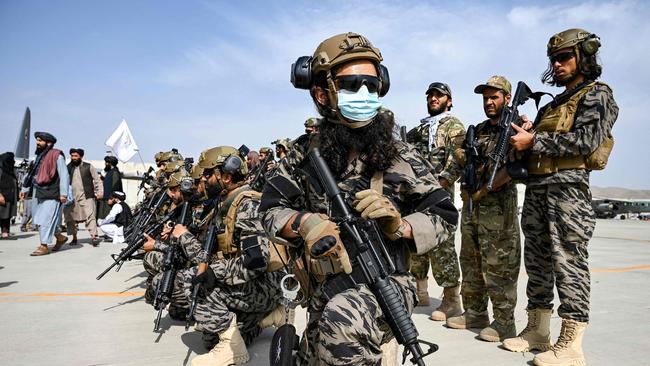
Some 123,000 foreign nationals and Afghans, including many of Afghanistan’s educated and entrepreneurial class, have left.
They are now scattered across the world – from Rwanda to Albania, Uganda to Kosovo – waiting to secure visas to one of the Western countries that invested so heavily in Afghanistan only to pull out all their troops and diplomats.
Thousands of Afghans have formed a caravan of the wretched, trudging overland towards border crossings largely closed to them. Many more are plotting their escape.
Wafi Walim, a doctor who spent years training Afghan government employees in Oruzgan for an AusAID-funded project, says his family’s bags are packed. They are ready to move at a moment’s notice when – if – they’re granted Australian visas.
Until then he carries on a facade of normalcy for his kids.
“You know that film (Life is Beautiful) in the Nazi camp where the father pretends to his son that everything is normal? Life for me is like that. All the time I am telling them everything will be OK, it will change very soon,” he says.
“Checking phones, emails, WhatsApp messages is a disease everybody has now. Everyone is waiting for news.”
A “fatal love” affair is how Bilal Sarwary, a former BBC journalist and one of Afghanistan’s most eloquent storytellers, described his own complicated devotion to his country as he too stood on the tarmac preparing to flee.
“Today’s the day that a generation of Afghans have buried their dreams and aspirations and our lives. It breaks my heart to tell you that this is a brain drain – I don’t have any other word for it,” he said. “Afghanistan is a country where good people, they don’t grow on trees.”
So profound has the talent exodus been, Taliban spokesman Zabihullah Mujahid publicly urged America to stop encouraging Afghan professionals to leave.
“This country needs our doctors, engineers and those who are educated – we need these talents,” he said.
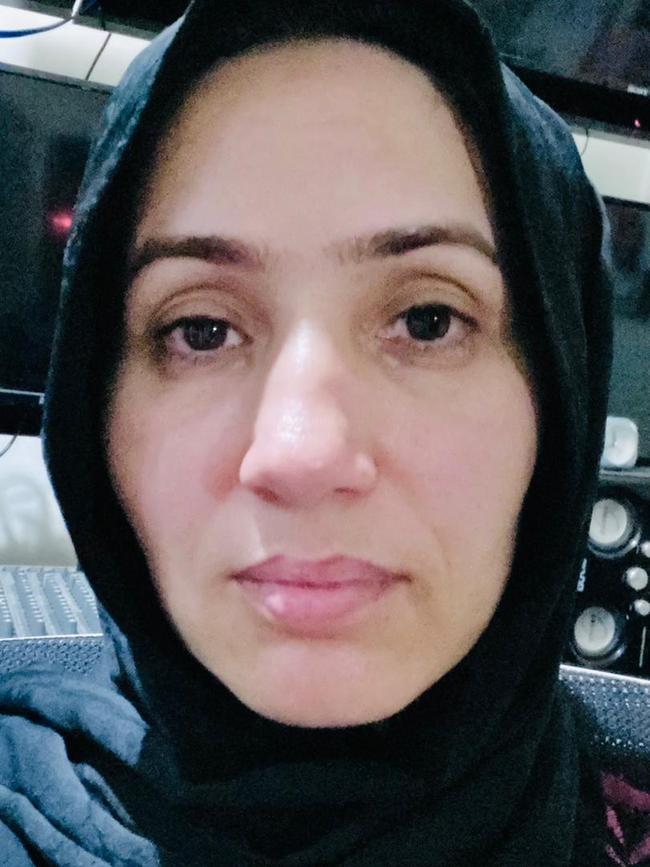
It also needs bureaucrats to run essential government services such as electricity provision, but they too have left or are in hiding.
Taliban fighters have told Afghans at Kabul’s passport office they don’t know how to operate the system, and that those who do are refusing to return to work.
“It’s kind of funny, but it’s not,” one Afghan friend said. “If they’re not able to do even basic stuff, how will they handle the big issues?”
Defending the pullout this week, President Joe Biden said the US had only one vital national interest in Afghanistan; ensuring it “can never be used again to launch an attack on our homeland”.
“This decision about Afghanistan is not just about Afghanistan. It’s about ending an era of major military operations to remake other countries,” he said.
With the US gone, some hope the Gulf states – Islamic regimes where women and girls at least can go to school and work – may have a moderating influence on Taliban leaders.
But Amin Saikal, author of Modern Afghanistan; A History of Struggle and Survival, says the new Taliban regime will more likely be shaped by horse trading between Taliban leaders and even more extreme groups such as the Haqqani network.
“It’s been three weeks since the Taliban began taking major cities and they have still not been able to announce a government. That points to a lot of debate behind the scenes,” he told Inquirer.
Saikal says splits are already emerging between the brutal Haqqani network – which now controls Kabul – and Taliban political leaders who have grown more worldly through years of negotiating a return to power.
“Whether Taliban leaders will be able to maintain their grip on military commanders and foot soldiers also remains to be seen.”
Their initial promises – a general amnesty for all and rights “under the framework of sharia” for women and girls – are being implemented patchily, at best.
Government officials and Afghan soldiers have been executed. Educators have warned the Taliban demand that students be segregated means millions of girls will not get a high school or university education. Music has also been banned.
In the wake of the US withdrawal, Mujahid has urged the international community to recognise Taliban rule and help it address Afghanistan’s multiple crises. They include a cash crunch, due to the suspension of international aid and cash shipments from Afghanistan’s $US9.4bn reserves abroad, and looming humanitarian disaster caused by drought and the collapse of the state.
“We are looking forward to the future with one goal in sight; rebuilding our country,” he said.
Already, hundreds of people in Kabul are lining up on roadsides selling their households goods for cash. Lines outside banks snake around blocks.
The Taliban has also pledged not to let terrorists use Afghanistan as a launch pad for attacks on the West, though many analysts say the group is inseparable from al-Qa’ida thanks to intermarriage and years of fighting together.
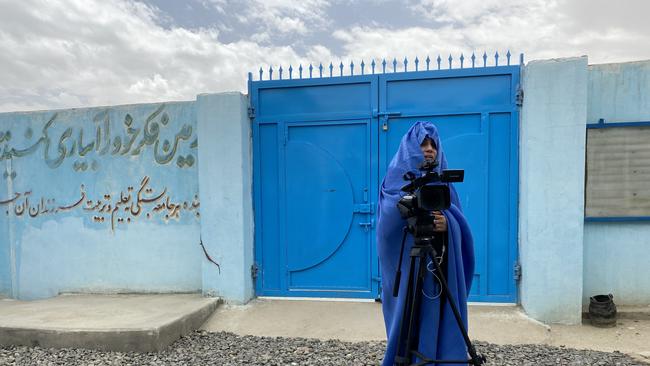
Douglas London, the CIA’s South and Southwest Asia counter-terrorism chief until his retirement in 2019 and author of The Recruiter: Spying and the Lost Art of American Intelligence, says it is “naive” to think the “Taliban are more concerned about how they’re perceived by the outside”.
“That’s their narrative these days but the Taliban needs isolation to control the country. The last thing they want is global integration, and to become dependent on the global economy so the US and the West can enforce sanctions on them to push them towards certain policies.”
Women in disbelief
So what happens to Afghanistan now? An old Afghan proverb warns to “Beware of the beggar who becomes king”.
William Maley, a veteran Afghanistan analyst and ANU emeritus professor, suggests the Taliban could end up being “worse than they were on the ground in the late ’90s because they have 20 years of pent-up resentment”.
For now there is no fighting at least – except in the last redoubt of anti-Taliban resistance in the Panjshir Valley – for which millions of war-weary Afghans are grateful.
But the Taliban’s idea of peace is jarring. On Thursday, a televised victory parade included floats displaying car and barrel bombs, and fighters dressed in a variety of suicide vests – weapons that have killed tens of thousands of Afghan civilians.
Heather Barr, Human Rights Watch associate director of women’s rights, says Afghan women are “in a state of disbelief that this is happening after all the things that have been said; that the world will never abandon them, that women’s rights in Afghanistan are important”.
“We don’t know what exactly the Taliban plans. Maybe a broader category of women will be allowed to work than in 2001, maybe girls will be allowed to go to primary school, but how incredibly grim to be hoping for these crumbs.”
While the Taliban was already running shadow governments in some areas, American University of Afghanistan professor Omar Sharifi says there is little evidence it has thought about how to govern the country, or that it is even interested in building education systems, agricultural output and the economy.
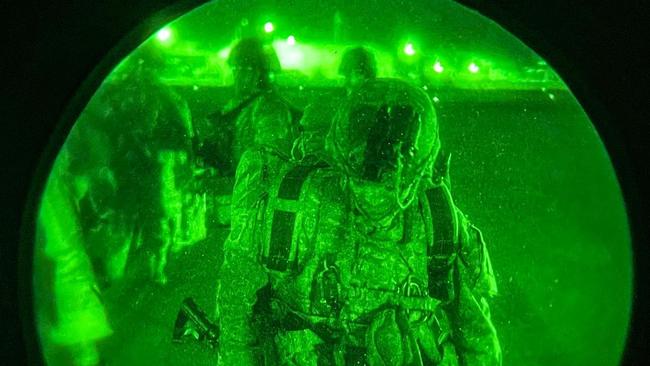
Taliban leaders may be seasoned politicians after 20 years of deal-making, but they are not policymakers.
“It has been, and I believe it will be again, about ruling and extracting resources,” Sharifi told a recent online discussion group.
Much has been made of the international community’s leverage through aid, a stalled $442m IMF payment, and Afghanistan’s frozen cash reserves. Under the previous government, 75 per cent of public spending was funded by donors.
But Douglas London says the idea that foreign aid can moderate the Taliban misreads its nature.
“You have to look at it through the prism of ‘what does the Taliban need to rule? What do they need to appease their base?’, which is largely an agrarian community.
“The aid is to modernise Afghanistan, to provide more education, hi-tech jobs. None of these are things the Taliban wants. They’ll take what they can get but won’t want so much that it changes the society they’re trying to control.”
Bilal Sarwary says he has to hope Taliban leaders are ready to make the transition from fighting force to government for the sake of his countrymen and women, notwithstanding the new “restrictions on media, on women, the climate of fear and retribution”.
“This is a historic opportunity for the Taliban if they can learn from their mistakes and form an inclusive government.
“The Taliban has the entire country in their hands.”


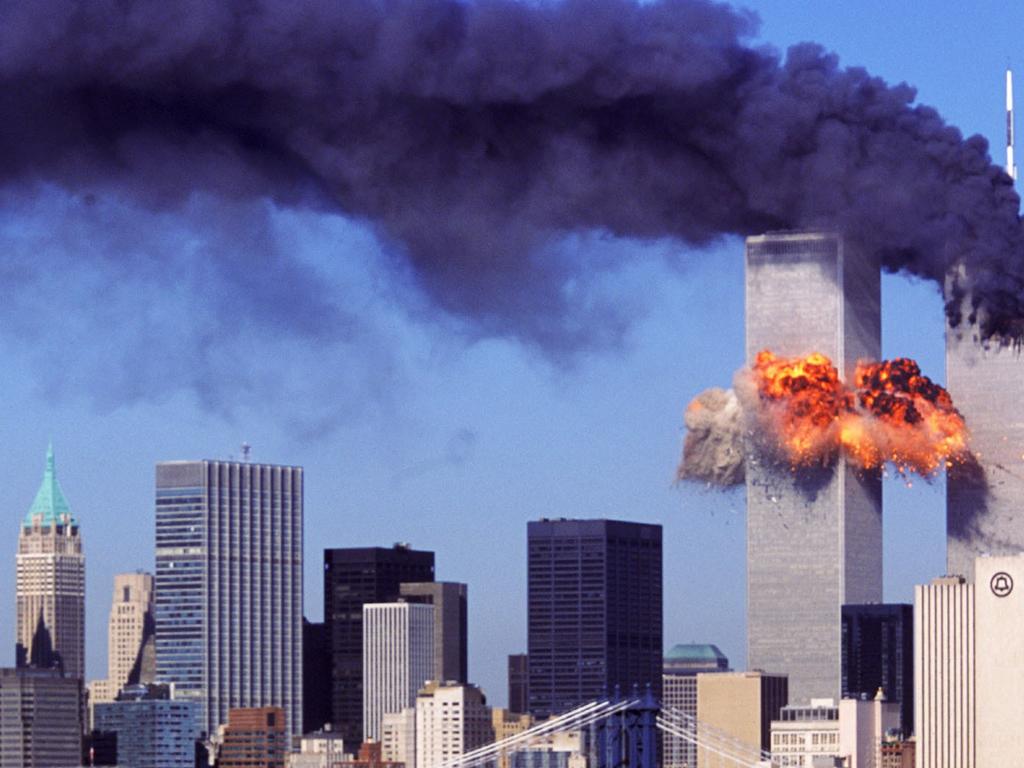



To join the conversation, please log in. Don't have an account? Register
Join the conversation, you are commenting as Logout